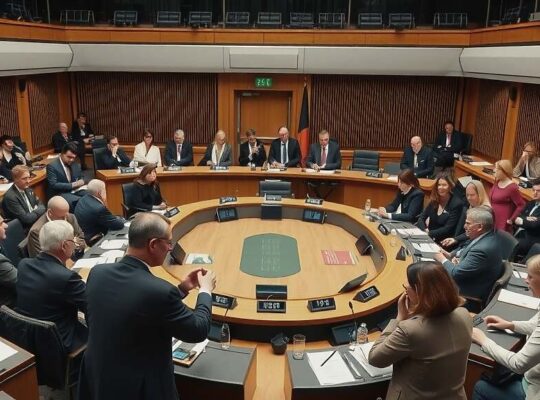The German government’s maritime economy and tourism coordinator, Christoph Ploß, is advocating for a reduction in the aviation tax levied on domestic flights, signaling a potential shift in policy amidst growing concerns over the viability of regional air travel and Lufthansa’s threat to curtail services. Ploß’s proposal, voiced in the Funke-Mediengruppe newspapers, aligns with demands from the aviation industry and appears intended as a direct response to Lufthansa’s recent warnings about unprofitable routes.
Lufthansa’s Chief Executive, Jens Ritter, recently indicated the potential elimination of flights from airports including Bremen, Dresden, Cologne, Leipzig, Münster, Nuremberg and Stuttgart, citing unsustainable operating costs. While Lufthansa itself is expected to finalize its summer flight schedule in late October, providing a clearer picture of its future network, Ploß’s intervention highlights the escalating pressure on the government to intervene.
The aviation tax, increased by the current “traffic light” coalition government, is widely perceived as a significant contributing factor to the industry’s struggles. Ploß’s call for a reduction, particularly targeting domestic flights, echoes industry requests to waive the tax on round-trip tickets within Germany to bolster the struggling domestic air travel market. While the coalition agreement nominally allows for relief for the sector, concrete action remains elusive.
Beyond passenger inconvenience and the potential rise in travel costs, Ploß warns of the broader economic repercussions of declining air connectivity. He argues that the loss of flights to and from key regions like Münsterland, Stuttgart and Saxony risks isolating these areas and damaging their tourism and overall economic vitality. The decline in domestic flights has been dramatic; the German Aviation Association (BDL) reports an 84% decrease in the number of flights since 2019, falling from 238,600 to a projected 117,600 this year.
Joachim Lang, CEO of the BDL, further emphasized that reducing the aviation tax would not only assist domestic travel but also encourage airlines to expand flight options to other European destinations and long-haul routes. The move, therefore, carries implications for Germany’s broader competitiveness and its role within the European aviation network, raising questions about the coalition’s long-term strategy for supporting a vital, yet increasingly precarious, sector. The current policy risks creating a self-fulfilling prophecy: higher taxes drive down demand, leading to route cuts, further eroding the aviation sector’s contribution to the German economy.












